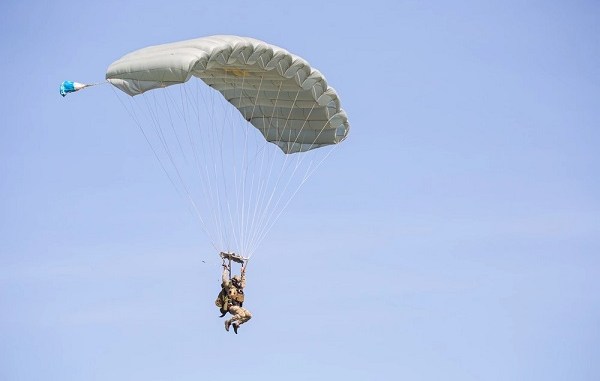
Story by Cpl. Henry Rodriguez II.
During its 17th anniversary on Feb. 24, 2023, Marine Forces Special Operations Command and the Marine Raiders that fill its ranks celebrated a history and legacy that extends beyond the most recent years as a service component under U.S. Special Operations Command.
Dating back to Feb. 16, 1942, with the establishment of 1st Raider Battalion in World War II, Marines consistently participated in and shaped special operations. 1st Raider Battalion, along with 2nd, 3rd and 4th Raider Battalions, proved essential in the Pacific theater providing a unique skillset and operational capability that differed from conventional Marine units at the time. Even with the success of the Marine Raiders during WWII, 4th Marines, 6th Marine Division assumed command of the four Raider battalions and aligned them to a more conventional mission in February 1944.
While Marines assisted or participated in special operations in various capacities throughout the next 60 years, the Marine Corps would not establish a dedicated special operations unit until after 9/11. Up until that time though, Marine Force Reconnaissance and the innovations of units such as Marine Corps Test Unit 1, which developed specialized tactics and techniques including employment concepts for relatively new rotary-wing aviation, carried on the legacy of the Marine Raiders.
Once the Global War on Terrorism began, then Secretary of Defense Donald Rumsfeld directed the creation of a Marine Corps component in SOCOM. This began with Detachment One, a pilot program made up of predominately Force Reconnaissance Marines and support staff who operated alongside Navy SEALs from Naval Special Warfare Group One.
Following Det One’s successes in Iraq, the Marine Corps officially activated MARSOC on Feb. 24, 2006. The 2,500-person command, pulled largely from Force Reconnaissance units on both coasts and deployed its first units within six months of its creation. MARSOC would later expand and redesignate its units as Marine Raiders in honor of its WWII heritage.
“The unconquerable spirit of our people builds on the foundation and legacy of Marines throughout our history,” said Maj. Gen. Matthew Trollinger, MARSOC Commander. “Our Marine Corps and Marine Raider heritage shapes the way we attack unique problems with novel and innovative approaches grounded in our ties to the littorals and expeditionary, amphibious operations.”
Moving forward while honoring the legacy of the Marine Raiders of the past, MARSOC remains focused on achieving success. As the 21st century battlefield rapidly evolves and the need for multi-domain special operations capabilities increases in an ever-changing global landscape, the command continues to adapt to meet new threats.
“Looking to the future,” stated Trollinger, “MARSOC will pursue strategic shaping and reconnaissance in the littorals; experiment, innovate, and evolve faster than adversary comprehension and adaptation; and create a more capable, professional, and effective force to fight and win around the globe if required.”
Prioritizing SSR in the littorals will ensure that MARSOC achieves success across the joint, interagency, intergovernmental, and multinational environment. By developing
special operations elements to conduct activities to gain awareness of adversary intentions and capabilities, Marine Raiders will deter, disrupt, or increase current and future adversary risk.
At the core of MARSOC’s SSR focus stands capable Marine Raiders able to outmaneuver adversary forces by employing a range of skillsets. These skillsets, when employed by special operations officers, critical skills operators, special operations capability specialists, and the many servicemembers and civilians which comprise the command, exponentially increase unit performance as the demands of SSR transform MARSOC into a littoral special operations force of the future.
“Each and every person in MARSOC contributes to our Marine Raider legacy by bringing diverse experiences and skillsets that contribute to solving today’s challenges and tomorrow’s problems,” concluded Trollinger. “We remain focused on our role in shaping that future as a highly motivated team committed to providing high-performing Marine special operations forces to achieve global mission success.”
**********
This story by Cpl Henry Rodriguez II of Maraine Forces, Special Operations Command was first published on March 30, 2023 by the Defense Visual Information Distribution Service. DVIDS content is in the public domain.
Photo: Marine Raiders rehearse advanced military free fall jumps at Camp Lejeune, N.C., Sept. 1, 2021. Military free fall sustainment training is necessary for a Marine special operations team to stay proficient and ready at all times for future operations. (U.S. Marine Corps photo by Cpl. Ethan Green)